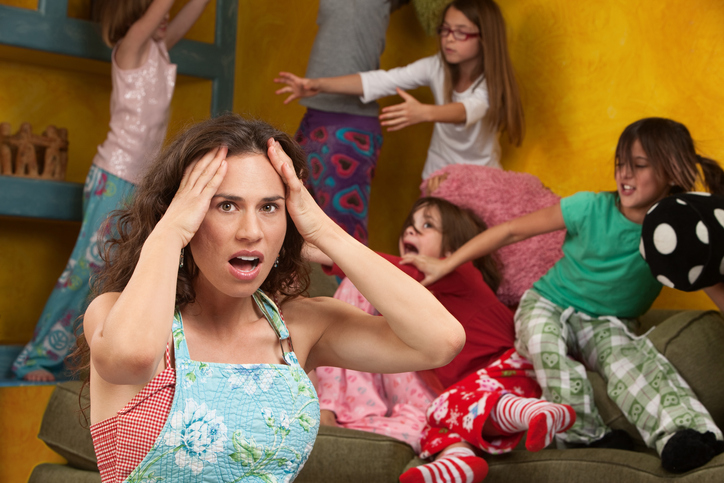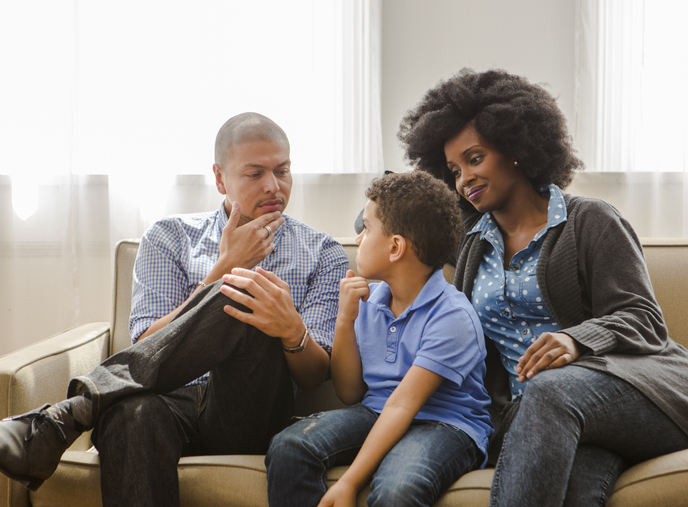Beyond ADHD Pandemic Burnout: How to help your family regroup and find strength
 If you are tired of hearing about how you and your family need to bounce back again as 2021 (and 2022) perpetuates the same problems as 2020, you are not alone. One mother of a fifteen year-old boy with ADHD and dyslexia who hates virtual school and is barely passing his courses told me she is “sick and tired of hearing about resilience. I’m drained and he’s depressed. That’s our reality.” She’s experiencing pandemic burnout and is flooded with resilience fatigue: exhaustion from facing daily challenges with resourcefulness and strength that’s just not there. Sound familiar?
If you are tired of hearing about how you and your family need to bounce back again as 2021 (and 2022) perpetuates the same problems as 2020, you are not alone. One mother of a fifteen year-old boy with ADHD and dyslexia who hates virtual school and is barely passing his courses told me she is “sick and tired of hearing about resilience. I’m drained and he’s depressed. That’s our reality.” She’s experiencing pandemic burnout and is flooded with resilience fatigue: exhaustion from facing daily challenges with resourcefulness and strength that’s just not there. Sound familiar?
The myth about resilience
 Resilience is the ability to rebound from difficulties. There’s a myth that resilience is about your character. It actually has as much, if not more, to do with your socioeconomic status, religious and ethnic background. Numerous obstacles such as financial stress, unemployment, bigotry and systemic racism demand resources beyond ‘resilience.’ Similarly, children and adults living with ADHD, persistent mental health issues or physical or learning disabilities struggle daily with challenges that demand effective coping strategies. When we offer platitudes about “digging deep” and “finding your resilience,” we may inadvertently dismiss the validity of these struggles.
Resilience is the ability to rebound from difficulties. There’s a myth that resilience is about your character. It actually has as much, if not more, to do with your socioeconomic status, religious and ethnic background. Numerous obstacles such as financial stress, unemployment, bigotry and systemic racism demand resources beyond ‘resilience.’ Similarly, children and adults living with ADHD, persistent mental health issues or physical or learning disabilities struggle daily with challenges that demand effective coping strategies. When we offer platitudes about “digging deep” and “finding your resilience,” we may inadvertently dismiss the validity of these struggles.
Resilience fatigue: the pandemic burnout is real
Resilience fatigue comes from being depleted mentally, physically and emotionally. It is REAL and particularly now. You, your neurodiverse kids, your extended family and our global community have been stressed and stretched by the pandemic beyond our capacities for months. COVID restrictions, indoor living and social isolation have worn us all down. It’s hard to envision bouncing back to something that we can’t see. Where is the light at the end of this tunnel anyway? For kids with ADHD who live with NOW/NOT NOW brains, seeing the future and focusing on what’s coming next is already tough. If the NOW is unpleasant (whether that’s another day of virtual school, reading Hamlet or cleaning the cat’s litter box), it doesn’t matter how great whatever is happening later may be. There’s just not enough dopamine in their brains to sustain interest and action to get through the unbearable present. Instructing them to buckle up and ride this pandemic out for a distant tomorrow seems really impossible when they’re wiped out.  As parents, your tank is likely on ‘empty’ too. Sadly, it seems like many parents I talk to feel ashamed of their depletion. You go on social media and see how other mothers or fathers manage to be productive, create and maintain activities for their kids, stay fit and prepare gorgeous meals. But, you can’t compare your insides to other people’s outsides. Whatever people are posting is what they want you to believe. Underneath their smiles lie similar struggles to your own.
As parents, your tank is likely on ‘empty’ too. Sadly, it seems like many parents I talk to feel ashamed of their depletion. You go on social media and see how other mothers or fathers manage to be productive, create and maintain activities for their kids, stay fit and prepare gorgeous meals. But, you can’t compare your insides to other people’s outsides. Whatever people are posting is what they want you to believe. Underneath their smiles lie similar struggles to your own.
How to cope with resilience fatigue and pandemic burnout
The antidote to resilience fatigue is compassion–for yourself and for your kids. When people feel resilience fatigue, they’re not only exhausted but they are judging themselves for what they aren’t doing. This is especially true for neurodivergent kids with ADHD, LD or ASD who find virtual school difficult and aren’t doing well. Their current challenges reinforce whatever negative self-talk they already engage in. So, we’ve got to pivot to paying more attention to what is going well enough, adjusting expectations to meet the reality of pandemic life and reducing negative expectations for failure. Follow these steps to regroup and rekindle the spark of strength that you all possess:
1. Start with acknowledging how you feel:
 Stop judging yourself and your kids for being the way you are. Resist comparisons with other families and students. When you accept how you and your kids are actually doing–the good, the bad and the ugly, you move from the draining, self-defeating statements of ‘I should’ and live with the soothing balm of refueling statements of ‘I can.’ Coping with resilience fatigue starts with acceptance. Ask your son or daughter with ADHD what is one ‘should’ they tell themselves? How can you work together to transform this statement into a ‘can’?
Stop judging yourself and your kids for being the way you are. Resist comparisons with other families and students. When you accept how you and your kids are actually doing–the good, the bad and the ugly, you move from the draining, self-defeating statements of ‘I should’ and live with the soothing balm of refueling statements of ‘I can.’ Coping with resilience fatigue starts with acceptance. Ask your son or daughter with ADHD what is one ‘should’ they tell themselves? How can you work together to transform this statement into a ‘can’?
2. Change ideas about personal failure:
Resilience fatigue in the midst of this pandemic has very little to individual limitations and everything to do with how the government and health care system let us down. This burnout is a natural process related to the grief, hopelessness and helplessness we all have felt at some time during this past traumatic year. Cut yourself some slack and revamp your expectations for your neurodiverse kids and your family. At your weekly family meeting or during dinner, ask everyone to share one hope for themselves in the coming week. Explore what type of support they may need to bring it to fruition. Then, next week, check in about this and identify another hope. By talking about hopes instead of expectations, there’s a greater chance of a small success. Hope can shift pessimism to positivity.
3. Focus on contentment, not happiness:
 Where happiness is fleeting, contentment reflects ongoing satisfaction. We can’t snap our fingers and erase the COVID world, but we can create a few rituals that make us smile. Have breakfast for dinner once a week. Make popcorn and have a mandatory family movie night. Visit a local place you’ve never been or one that you really love. Host a short zoom dance party in your living room and let each family member pick a song. Ask your friends for ideas of things they’ve been doing to break up the monotony.
Where happiness is fleeting, contentment reflects ongoing satisfaction. We can’t snap our fingers and erase the COVID world, but we can create a few rituals that make us smile. Have breakfast for dinner once a week. Make popcorn and have a mandatory family movie night. Visit a local place you’ve never been or one that you really love. Host a short zoom dance party in your living room and let each family member pick a song. Ask your friends for ideas of things they’ve been doing to break up the monotony.
4. Go backwards to go forwards:
Look back as a family on what has helped you thus far get through the pandemic. Help your kids be as specific as possible. They may need some nudging as recalling positive stuff is tough for many folks, particularly those with ADHD. Write down each idea on a large piece of paper and put it in the kitchen or tv room for everyone to see. When you examine what tools fostered previous resilience, you’ll see the drops of water needed to refill your dry well right in front of you. Pick one to practice for a week, otherwise it might overwhelm you and be self-defeating. One of my favorite mentors says: “When you get to the end of your rope, make a knot and hold on.” Holding on, resting there, resetting and regrouping will help your family cope with resilience fatigue. These practices will help rebuild your collective and personal strengths, too. 
Read more blog posts:
- 5 Self-Care Ideas: Parenting ADHD in a Pandemic
- Managing Uncertainty With Your Family During COVID-19: More than deep breathing
- Post-Pandemic Self-Care for Parents: 12 Tips for Wellness Practices in a New Normal
Deeper dive: https://drsharonsaline.com/product/online-learning-tips-for-parents-bundle/ https://drsharonsaline.com/product/home-seminar/
